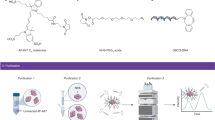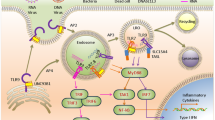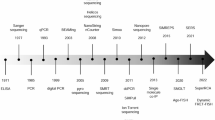Abstract
IT has been shown that if single-cell protein is to be used as a primary protein source for human populations, the nucleic acid content should be reduced to a level which would allow a maximum intake in the range of 2 g of nucleic acid per day1. For a processing method to be acceptable, it must not only decrease the nucleic acid level to the required degree, but it must also be inexpensive and must not contaminate the product with undesirable chemicals.
This is a preview of subscription content, access via your institution
Access options
Subscribe to this journal
Receive 51 print issues and online access
$199.00 per year
only $3.90 per issue
Buy this article
- Purchase on SpringerLink
- Instant access to the full article PDF.
USD 39.95
Prices may be subject to local taxes which are calculated during checkout
Similar content being viewed by others
References
Edozien, J. C., Udo, U. U., Young, V. R., and Scrimshaw, N. S., Nature, 228, 180 (1970) (this issue).
Miller, T. L., and Johnson, M. T., Biotech. Bioeng., 8, 549 (1966).
Bodley, J. W., Biochemistry, 8, 465 (1969).
Haight, R. D., and Ordal, Z. J., Canad. J. Microbiol., 15, 15 (1969).
Author information
Authors and Affiliations
Rights and permissions
About this article
Cite this article
MAUL, S., SINSKEY, A. & TANNENBAUM, S. New Process for Reducing the Nucleic Acid Content of Yeast. Nature 228, 181 (1970). https://doi.org/10.1038/228181a0
Received:
Revised:
Issue date:
DOI: https://doi.org/10.1038/228181a0
This article is cited by
-
NH4OH-Based pretreatment for improving the nutritional quality of single-cell protein (SCP)
Applied Biochemistry and Biotechnology (1995)
-
DNase activity ofMicrococcal endonuclease insolubilized on corn cob
Applied Biochemistry and Biotechnology (1989)
-
Nucleic acid reduction in yeast
Applied Microbiology and Biotechnology (1988)
-
Nucleic acid reduction in yeast
Applied Microbiology and Biotechnology (1988)
-
Reduction of nucleic acid content in cell biomass of methanol-utilizing mixed bacterial culture by heat treatment
Biotechnology Letters (1988)



